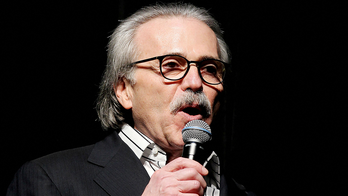A group of liberal and conservative Democratic senators are moving closer to a compromise over a government-run health insurance plan following days of closed-door meetings, according to participants, though they warned that divisions remain.
The talks have so far focused on the creation of a national plan, instead of a so-called "public option," that would be modeled on the federal employees coverage plan -- called the Federal Employees Health Benefits Program (FEHBP), according to several participants and a senior Senate Democratic leadership aide.
The aide described the proposal by saying the Office of Personnel (OPM), which currently negotiates the federal employees' plan, would negotiate a plan to be put on the healthcare exchanges.
"It would be a government-negotiated plan but with a private insurer, which then maintains the plan," the aide said.
"It would be a cheaper, bare-bones plan," the aide added, suggesting that it would bring down the cost for taxpayers.
When asked how the plan gets around state insurance regulations, Democratic Sen Ben Nelson of Nebraska, said, "Through the exchanges and through the implementation of interstate compacts that give full faith and credit" to the federal plan.
The Democratic Senate aide also described a type of trigger mechanism, which the aide said could be aimed at getting the support of GOP Sen Olympia Snowe of Maine -- the lone Republican to support Democratic health care efforts so far.
Snowe, herself, has introduced a triggered public option, and she recently expressed support for including OPM in a compromise.
"If plans meet a certain set of requirements set by the government, like allowing for a set number of uninsured to become insured and prices not rising faster than healthcare inflation" then the national plan would not kick in, the aide said.
The trigger is in flux, however, because of concerns by a few lawmakers in the talks, according to the aide.
Democratic Sen. Jay Rockefeller of West Virginia, one of the lead negotiators, told reporters that he does not favor a trigger option "in the beginning," because "very often the trigger is never pulled."
Rockefeller has also introduced another, highly controversial component -- the possibility of a Medicare buy-in for Americans between the ages of 55 and 65. But the idea has been met with resistance from some, like Sen. Ben Nelson, D-Nebraska, who has expressed reservations about the proposal.
"I'm going to need to see a (Congressional Budget Office) score," Nelson said, referring to the nonpartisan congressional agency that analyzes and calculates the cost, or "score," of legislation to the federal government.
"I'm going to need to see an analysis," added Sen. Kent Conrad. "It's got many of the same problems that I had with previous versions of it in the public option...that then ties you to Medicare levels of reimbursement. States like mine, that's a big problem."
Conrad continued: "Before anyone can reach conclusions, there needs to be a CBO score."
"Expand Medicare - what kind of risk pool is that going to be? What's that going to do to rates? What's that going to do to solvency?" he asked.
"It's always about North Dakota and never about any other part of the country," Rockefeller said in response to Conrad. "And I thought that's what we're trying to do, the best thing for the country as a whole."
Some negotiators have also proposed expanding Medicaid, according Sen. Charles Schumer, D-N.Y., a key participant in the compromise talks.
Though big hurdles remain to finding middle ground, but Nelson said he's heartened by the progress.
"Discussions are going in the right direction, and moving away from a government-run plan," but "we're a long way" from a solution, he said.




